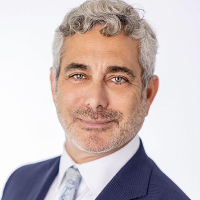 Pikesville White Collar Crime Lawyers, Maryland
Pikesville White Collar Crime Lawyers, Maryland
Sponsored Law Firm
-
 x
x

Click For More Info:
-
Cromwell & Associates, LLC
7305 Baltimore Ave Suite 307 College Park, MD 20740» view mapEstate, Tax, and Real Estate Law Where Every Client Matters
At Cromwell & Associates, our firm is large enough to handle your diverse needs, but small enough to give you the personal attention you deserve.
240-667-7234
Sponsored Lawyers
1-4 of 4 matches
Criminal, DUI-DWI, Federal, White Collar Crime, Domestic Violence & Neglect
Craig Kadish is a seasoned criminal defense attorney dedicated to providing strong legal representation for individuals facing serious criminal charges. With a deep understanding of criminal law, he has successfully represented clients in a variety of cases, including child pornography (CSAM) offenses, homicide, drug conspiracy crimes, rape and sexual offenses, and federal weapons charges. His experience extends to both state and federal courts, where he consistently works to protect his clients' rights and achieve the best possible outcomes. Mr. Kadish knows that facing criminal charges can be overwhelming, especially for those who are unfamiliar with the legal process. He is committed to guiding clients through each step of their case, offering compassionate support while delivering meticulous attention to detail in building a defense. Whether dealing with accusations related to the receipt or distribution of child pornography, federal drug conspiracy crimes, or protective orders, Mr. Kadish handles each case with care and diligence. After earning a Bachelor of Arts from The George Washington University, Mr. Kadish went on to receive his Juris Doctor from the University of Maryland Francis King Carey School of Law. He is licensed to practice law in Maryland and has built a reputation for his dedication to legal ethics and his passion for criminal law. In addition to his practice, Mr. Kadish regularly contributes to the legal community by lecturing on criminal law topics and serving as a mock trial judge at the University of Baltimore School of Law. For personalized and effective legal representation, contact Craig Kadish today at (410) 837-0020 or complete his online contact form. Whether you are facing charges in a state or federal court, Mr. Kadish will provide the guidance and defense you need to navigate this challenging time.
(more)


 Stephen Cromwell College Park, MD
Stephen Cromwell College Park, MD AboutCromwell & Associates, LLC
AboutCromwell & Associates, LLC

